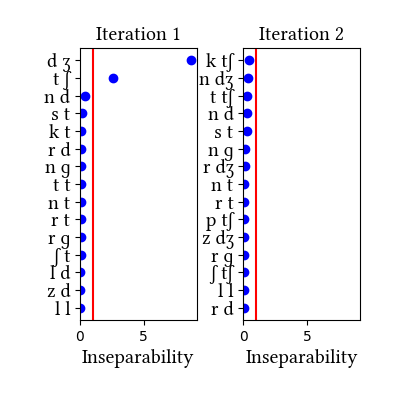Standard Turkish (Turkic)
Turkish is described in the paper along with Hebrew, as one of the relatively straightforward cases from the point of view of phonotactic arguments for complex segments. There is only one thing to add here: etymologically, the voiced [dʒ] is foreign in Turkish. Grammars often mention that this sound occurs in loans from Arabic, Persian, and European languages--as well as a few native ideophones. It is likely that native speakers are not aware of the sound being etymologically foreign, and it is sufficiently well-established that our learner identifies it on the first iteration.
Simulation data at a glance
Click on simulation name to view additional simulation details.
| Simulation name | Initial state Learning Data | Initial state features |
|---|---|---|
| Tell | LearningData.txt | Features.txt |
| Nouns | LearningData.txt | Features.txt |
Simulation details for Turkish tell
Input:
This includes all the words from TELL paradigms. We used the source's IPA transcriptions.
LearningData.txt | Features.txt
Summary of iterations:
| Iteration | Learning Data produced | Features produced | Inseparability | New Segments added | Segments removed |
|---|---|---|---|---|---|
| 1 | LearningData.txt | Features.txt | [download] [view] | tʃ, dʒ | None |
| 2 | No new learning data | No new features | [download] [view] | None | None |

